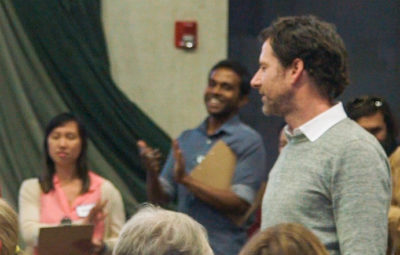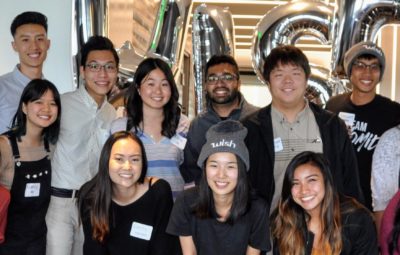UC San Diego Design Lab members Derek Lomas and Philip Guo were recently recognized by the Special Interest Group on Computer-Human Interaction (SIGCHI) 2017 Conference. The SIGCHI Conference on Human Factors in Computing Systems is the premier international conference of Human-Computer Interaction (HCI). This year, the event is being held in the foothills of the Rocky Mountains in Denver, Colorado from May 6 to 11. The CHI conference brings together people from multiple disciplines and a diversity of cultures to explore new ways to practice, develop and improve methods and systems in HCI, to discuss ideas that can lead to innovations, and to inspire us all.
This year, SIGCHI recognized Lomas for his paper “Is Difficulty Overrated? Measuring the Effects of Motivational Design Factors in an Educational Game” and Guo for his paper “Older Adults Learning Computer Programming: Motivations, Frustrations, and Design Opportunities” both received an honorable mention and ranked in the top 5% and top 100 of all 2,400 submissions to the SIG CHI 2017 conference.

Lomas Paper Abstract:
It is almost a truism that good games shouldn’t be too hard or too easy. It isn’t surprising that games can be too hard; after all, a core objective in HCI is minimizing user difficulty and maximizing ease-of-use. That makes it much more surprising that games can be too easy. Can games really be too easy? Or just too boring?
The evidence is mixed: in some studies, difficulty is good for intrinsic motivation and in other studies it is not. To clarify this issue for educational game designers and others, we ran three controlled experiments to test how various design factors modulate the role of difficulty on player intrinsic motivation.

Guo Paper Abstract:
This paper presents the first known study of older adults learning computer programming. Using an online survey with 504 respondents aged 60 to 85 who are from 52 different countries, this study discovered that older adults were motivated to learn to keep their brains challenged as they aged, to make up for missed opportunities during youth, to connect with younger family members, and to improve job prospects. Based on these findings, we propose new techniques to motivate older adults to learn programming and discuss broader societal implications of a future where more older adults have access to computer programming — not merely computer literacy — as a skill set.




